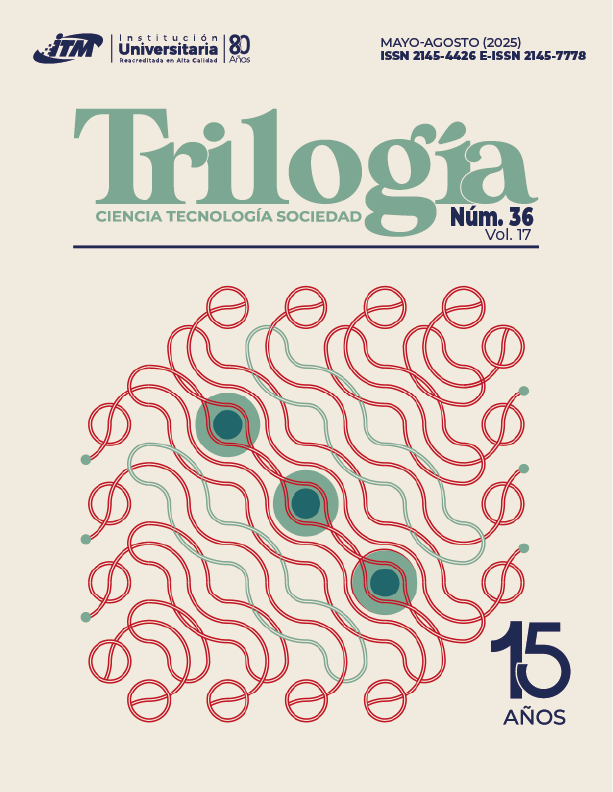Artificial Intelligence and Desirable Futures: Visions of Scientific Researchers in Mexico
Abstract
In Mexico, the lack of public policies, regulations, and a national strategy has left Artificial Intelligence (ai) in a phase of interpretative flexibility, where collectively shaped visions of its future play a key role in its stabilization. Against this backdrop, this study examines the future visions of ai held by researchers affiliated with two major Mexican research centers. To do so, a qualitative approach was employed, drawing on 25 semi-structured interviews and grounded in the discursive nature of the motivations guiding scientific practice. The findings reveal that these visions vary not only according to whether research is oriented toward basic or applied knowledge, but also depending on the institutional setting in which it takes place. Moreover, the study demonstrates that, in Mexico, future visions of ai are configured as niche strategies aimed at social utility, in contrast to global corporate imaginaries focused on disruption and productivity. It also shows that the vision of ai as a tool for technoscientific development is limited by the absence of a coordinated strategy and public policies. In conclusion, the paper outlines science policy actions that could strengthen collaboration among actors and support the development of low-cost computational solutions.
References
Bareis, J., y Katzenbach, C. (2022). Talking AI into Being: The Narratives and Imaginaries of National AI Strategies and Their Performative Politics. Science, Technology & Human Values, 47(5), 855-881. https://doi.org/10.1177/01622439211030007
Bommasani, R., Hudson, D. A., Adeli, E., Altman, R., Arora, S., Arx, S. von, Bernstein, M. S., Bohg, J., Bosselut, A., Brunskill, E., Brynjolfsson, E., Buch, S., Card, D., Castellon, R., Chatterji, N., Chen, A., Creel, K., Davis, J. Q., Demszky, D., … Liang, P. (2022). On the Opportunities and Risks of Foundation Models. Center for Research on Foundation Models (CRFM), Stanford Institute for Human-Centered Artificial Intelligence (HAI), y Stanford University. https://doi.org/10.48550/arXiv.2108.07258
Bortz, G., Gázquez, A., y Santos, G. M. (2022). Conocimientos, utilidad social y políticas públicas para la inclusión y sustentabilidad: Redes Territoriales Participativas como nueva forma de gobernanza. Redes. Revista de Estudios Sociales de la Ciencia y la Tecnología, 28(54), 1-53. https://doi.org/10.48160/18517072re54.143
Chavez, H., y Vizuete-Sandoval, D. (2025). Widening the divide, reloading dependency: The political economy of data and AI capability building in Latin America. Globalizations, 1-23. https://doi.org/10.1080/14747731.2024.2441625
Elish, M., y boyd, d. (2018). Situating methods in the magic of Big Data and AI. Communication Monographs, 85(1), 57-80. https://doi.org/10.1080/03637751.2017.1375130
Hager, G. D., Drobnis, A., Fang, F., Ghani, R., Greenwald, A., Lyons, T., Parkes, D. C., Schultz, J., Saria, S., Smith, S. F., y Tambe, M. (2017). Artificial Intelligence for Social Good. Computing Community Consortium. https://doi.org/10.48550/arXiv.1901.05406
Hilgartner, S. (2015). Capturing the Imaginary: Vanguards, visions, and the synthetic biology revolution. En S. Hilgartner, C. Miller, y R. Hagendijk (eds.), Science and Democracy: Making Knowledge and Making Power in the Biosciences and Beyond (pp. 33-55). Routledge.
Jasanoff, S. (2015). Future Imperfect: Science, Technology, and the Imaginations of Modernity. En S. Jasanoff, y S. H. Kim (eds.), Dreamscapes of Modernity. Sociotechnical Imaginaries and the Fabrication of Power (pp. 1-30). Chicago University Press.
Jasanoff, S., y Kim, S. H. (2009). Containing the Atom: Sociotechnical Imaginaries and Nuclear Power in the United States and South Korea. Minerva, 47(2), 119-146. https://doi.org/10.1007/s11024-009-9124-4
Kaplan, A., y Haenlein, M. (2019). Siri, Siri, in my hand: Who’s the fairest in the land? On the interpretations, illustrations, and implications of artificial intelligence. Business Horizons, 62(1), 15-25. https://doi.org/10.1016/j.bushor.2018.08.004
Kreimer, P. (2023). Techno-Scientific Promises, Disciplinary Fields, and Social Issues in Peripheral Contexts. Science as Culture, 32(1), 83-108. https://doi.org/10.1080/09505431.2022.2101918
Nayak, B. S., y Walton, N. (2024). Political Economy of Artificial Intelligence: Critical Reflections on Big Data Market, Economic Development and Data Society. Palgrave Macmillan. https://doi.org/10.1007/978-3-031-62308-0
Nowotny, H., Scott, P., y Gibbons, M. (2003). “Mode 2” Revisited: The New Production of Knowledge. Minerva, 41(3), 179-194. https://www.jstor.org/stable/41821245
Rampin, R. (2018). Taguette [software]. https://gitlab.com/remram44/taguette
Red Iberoamericana de Indicadores de Ciencia y Tecnología. (2023). El estado de la ciencia. Principales Indicadores de Ciencia y Tecnología Iberoamericanos / Interamericanos 2023. RICyT, Organización de Estados Iberoamericanos (OEI), y Unesco. https://www.ricyt.org/wp-content/uploads/2023/12/EL-ESTADO-DE-LA-CIENCIA-2023.pdf
Richter, V., Katzenbach, C., y Schäfer, M. (2023). Imaginaries of Artificial Intelligence. En S. Lindgren (ed.), Critical Studies of Artificial Intelligence (pp. 209-223). Edward Elgar.
Schot, J., y Geels, F. W. (2007). Niches in evolutionary theories of technical change. Journal of Evolutionary Economics, 17(5), 605-622. https://doi.org/10.1007/s00191-007-0057-5
Sued, G. E. (2024). La producción científica mexicana en Inteligencia Artificial: Un análisis bibliométrico. Investigación Bibliotecológica: archivonomía, bibliotecología e información, 38(100), 87-105. https://doi.org/10.22201/iibi.24488321xe.2024.100.58893
Wang, W., y Downey, J. (2025). Mapping the sociotechnical imaginaries of generative AI in UK, US, Chinese and Indian newspapers. Public Understanding of Science, 1-19. https://doi.org/10.1177/09636625251328518
Weber, J., y Prietl, B. (2021). AI in the age of technoscience. On the rise of data driven AI and its episteme ontological foundations. En A. Elliott (ed.), The Routledge Social Science Handbook of Artificial Intelligence (pp. 58-73). Routledge.
Downloads
Copyright (c) 2025 Gabriela Elisa Sued

This work is licensed under a Creative Commons Attribution-NonCommercial-ShareAlike 4.0 International License.

| Article metrics | |
|---|---|
| Abstract views | |
| Galley vies | |
| PDF Views | |
| HTML views | |
| Other views | |
Funding data
-
Consejo Nacional de Humanidades, Ciencias y Tecnologías
Grant numbers Proyecto Estancias Postdoctorales 4500990







